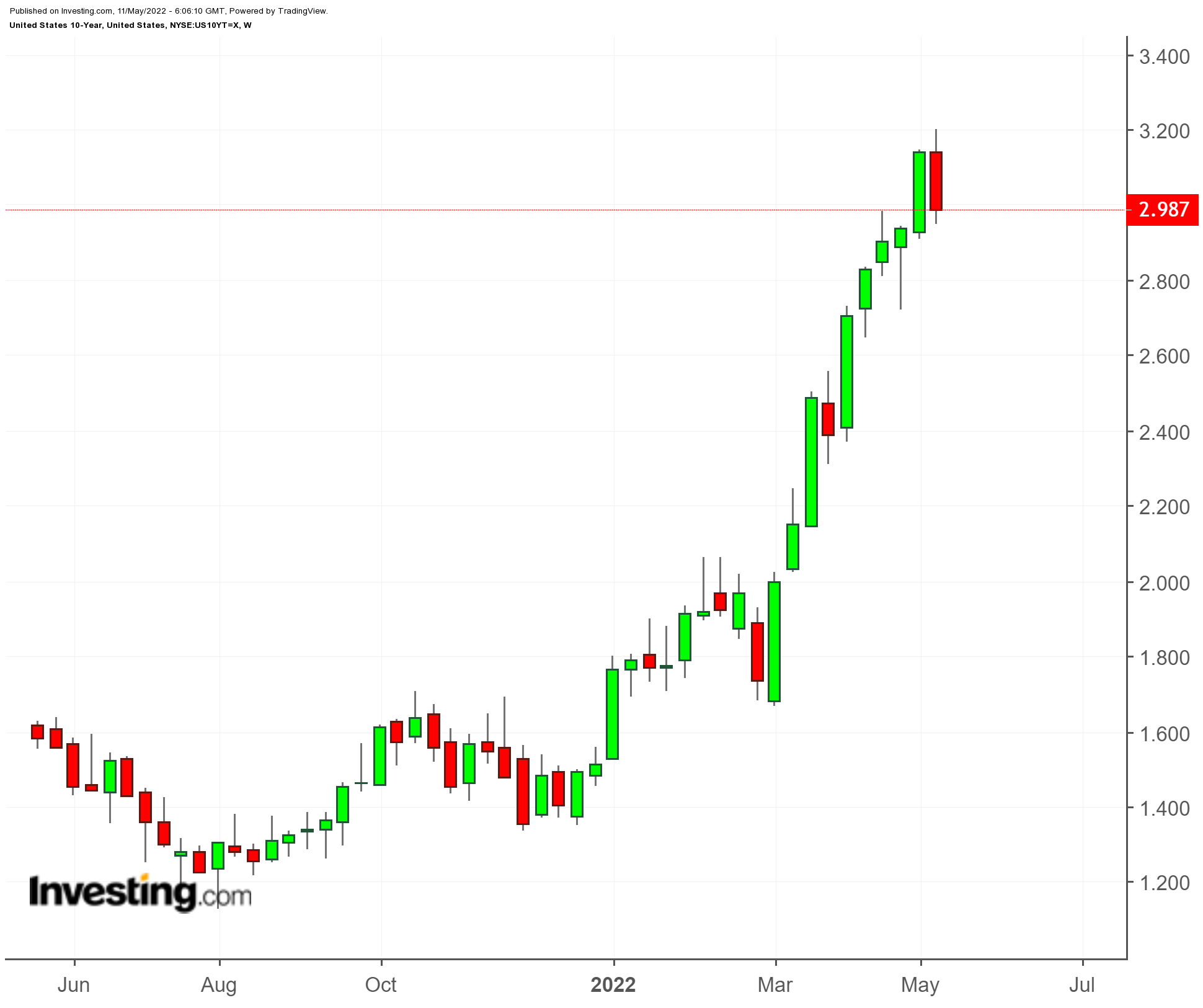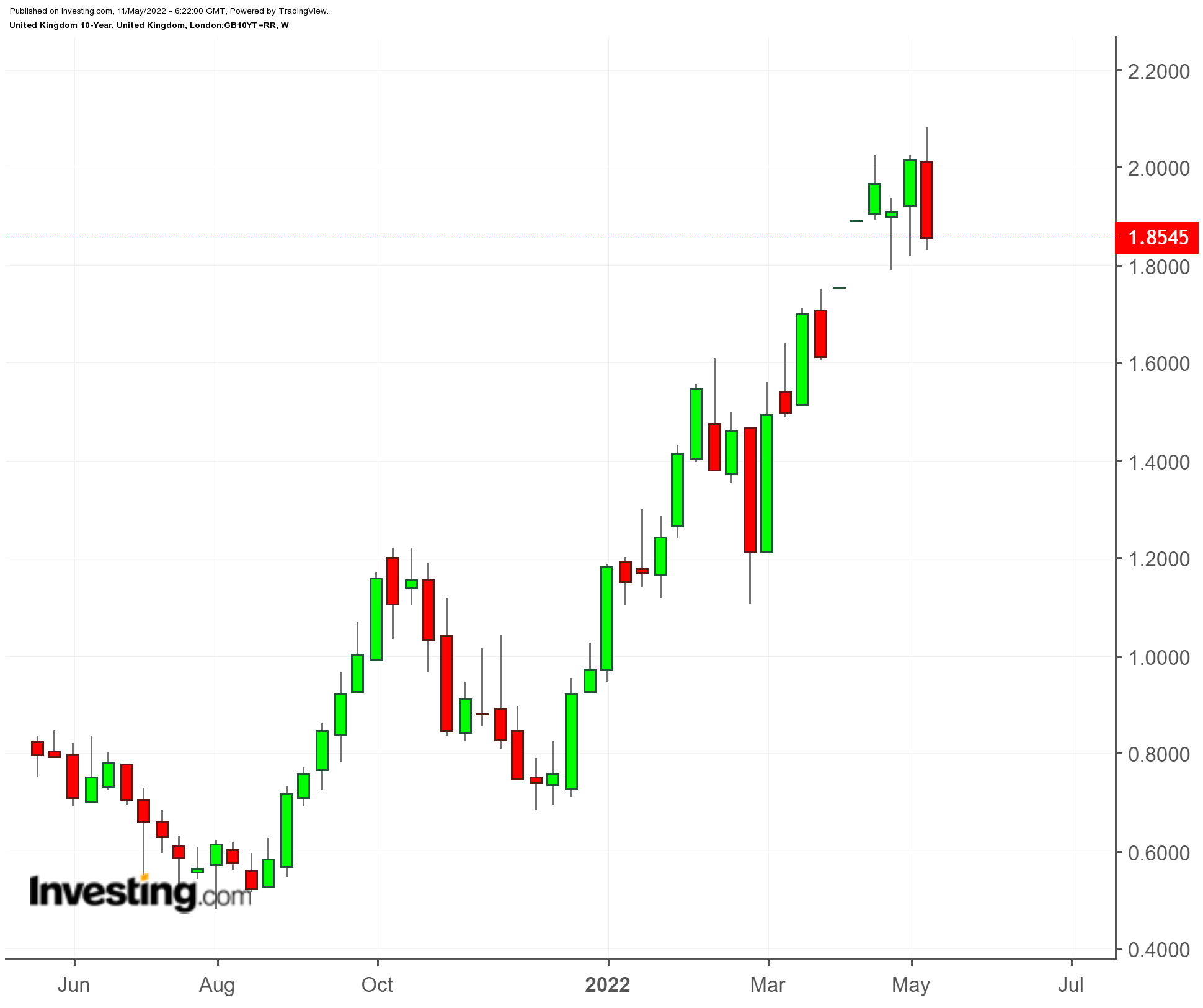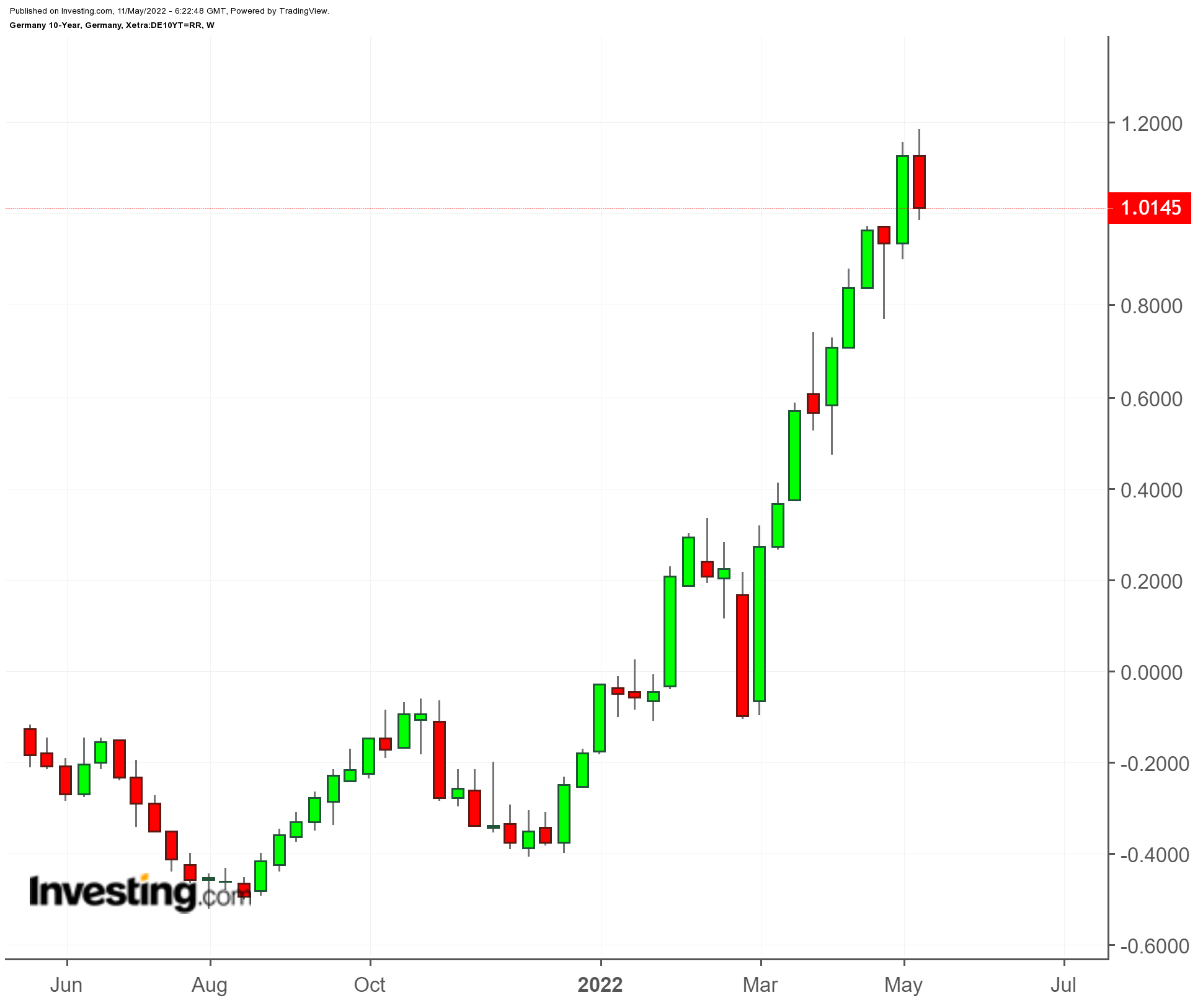Bond investors are confused—and no wonder. Central bank officials keep telling them to ignore the evidence in front of their eyes.

They are supposed to believe that inflation, which has been surging for more than year and shows no signs of going away, is transitory. And to believe that, central banks, which have been slow to react, can now tame inflation and engineer a soft landing for the economy.
Central bankers’ credibility gap is widening by the day. The main thing keeping a lid on Treasury yields is the growing fear that recession is coming and may be imminent.
Yield on the benchmark 10-year Treasury note shot up above 3.2% but then retreated below 3% on Tuesday as recession fears took hold.
Central bankers, meanwhile, abetted by much of the financial press, continue to promote the notion that inflation has peaked and that a robust and resilient US economy may slow down, but will not pitch into a recession.
The release of the US consumer price index on Wednesday may strengthen their case if indeed the year-on-year index falls to 8.1% as forecast from 8.5% in March, driven largely by a decline in gasoline prices.
Investors are supposed to ignore “volatile” energy prices, except when they come down. However, the so-called “core” index excluding food and energy is also supposed to decline in April. We’ll see. Expect a huge reaction if the actual data exceeds the forecasts.
Some analysts attribute the decline in Treasury yields to positioning as traders and institutional investors avoid short positions ahead of the CPI release.
Meanwhile, a sharp and prolonged decline in stock prices is creating headwinds of its own, as it deflates that supposedly robust consumer spending. It also robs companies of incentives to invest. All this could point to a severe slowdown, if not a recession.
The selloff in risk assets and flight to the safe haven of Treasuries is not necessarily an indicator of recession, but it is not a good sign.
Inflation Pressures Force European Policymakers To Quicken Rate Hikes
The Bank of England has been less reticent than other big central banks and last week suggested both a recession and double-digit inflation could be on the way as it hiked its policy rate another quarter-point, to 1%.

UK government bonds, known as gilts, have been on the same roller-coaster ride as Treasuries, with yield on the 10-year bond spiking above 2.07% on Monday only to fall below 2% on Tuesday.

Yield on Germany’s 10-year bond, seen as a benchmark for the eurozone, spiked to nearly 1.2% on Monday before falling back to 1.05% on Tuesday.
Joachim Nagel, head of the German central bank and a member of the European Central Bank’s governing council, on Tuesday said the ECB should start raising interest rates in July if inflation indicators continue strong, as well as halting net bond purchases by then.
The head of Finland’s central bank, Olli Rehn, who is generally more dovish than his German counterpart, also chimed in with a vote in favor of a July hike, as the so-called second-round effects of the Ukraine war drive European inflation higher. Rehn wants to avoid inflation expectations from becoming de-anchored.
